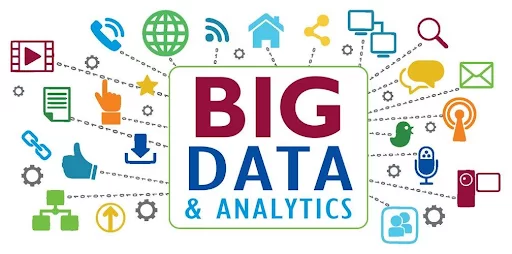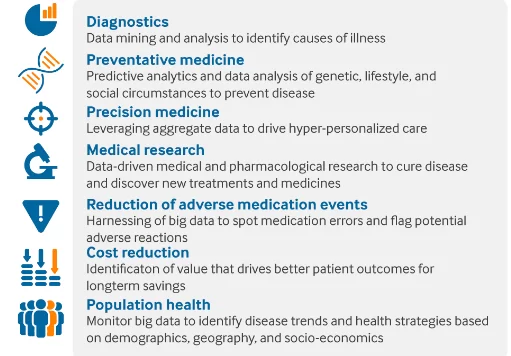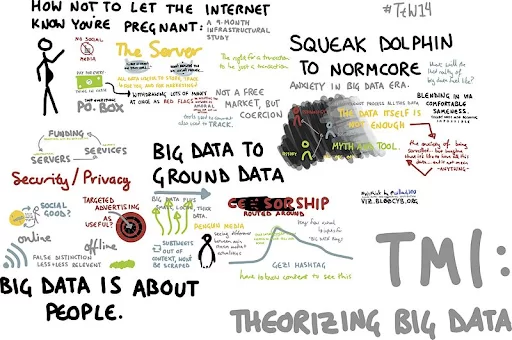Healthcare analytics exploration is the thing that interests medics and scientists worldwide and we’ve decided to get a deeper look at it.
Lately, you hear “analytics”, you know that big data is going to come up at some point. That is a no-brainer.
We live in a crazy world full of technology, just read this quote from ex-CEO of Google Eric Schmidt from 2010:
“There were 5 exabytes of information created by the entire world between the dawn of civilization and 2003. Now that same amount is created every two days.”
As it’s been over the decade, so we have tons of data to analyze to the date, and Big Data gets its applications across different industries.
From the top of the head, correct and timely data analysis in healthcare does the following:
- helps to decrease the cost of treatment
- allows predicting epidemics outbreaks
- optimizes medical activities and processes
- improves the quality and expectancy of life
This is the beginning of the series of blog posts dedicated to big data application in modern healthcare. We’ll give you a small overview of this life-saving machine.
What is Big Data?
The term “big data” is relatively new as it was only coined in 2005 by Tim O’Reilly. He used it to describe the volumes of data that hardly can be gathered or processed with traditional methods.
The current assessment of the big data analytics segment is at the level of worth more than $68.03 billion by 2024. In a case with healthcare, the application of this data might have life-saving effects.

Source: flickr.com
Applied to the industry, big data may refer to a sample of a population, or particular patients, and has the potential to no less than predict and prevent epidemics, let alone reducing costs of treatment.
There are plenty of sources for gathering data, everywhere across hospitals, Electronic Health Records (EHR) and wearable devices.
Gathering the data is challenging enough. Yet it no nearly as hard as converting big volumes of data into analyzable formats. Healthcare is also handicapped in comparison, with, let’s say, the manufacturing industry, due to privacy restrictions, security complications as well as constant budget constraints, and skewed data.
Modern software allows overcoming these challenges and converting data into an actionable format. Evidence-based analysis of the data helps to increase the efficiency of best practices of dealing with certain diseases or illnesses.
Also, it is of no secret, that medical staff suffers from poor hospital management. Adam Kay vividly described it in his book “This Is Going to Hurt: Secret Diaries of a Junior Doctor”. He says that he had to quit due to constantly working extra hours and it couldn’t physically be fixed or at least measured in a common public UK hospital.
This is certainly another problem to fix, one of many. More on that matter in the following section.
Healthcare was off to a slow start but nowadays more and more IoT devices on medical equipment and in wearables find their way to gather data and more organizations begin to analyze it.
According to the report by Chinese organization International Data Corporation (IDC), big data is projected to grow faster in healthcare than in manufacturing, financial services or media, and we can expect its’ annual growth rate (CAGR) of 36 percent by 2025.
Why We Need Big Data Analytics In Healthcare
We’ve already mentioned some of the reasons why big data is helpful in healthcare. Here are some more to add up.
The costs in healthcare can’t stop growing and are much higher than they could have been. 17.6% of US Gross Domestic Product (GDP) is spent on this domain. McKinsey report says that the benchmark for the US population could be $600 billion lower.
Obviously, such gigantic figures could use data-driven solutions for their reduction.
Costs reduction is the main reason out there. Or at least the most pushing and promising for total data applications.
As for other areas, big data analysis has power on improving, there are diagnostics (data mining for identification of causes of illness) and preventive medicine (data mining for preventing the causes of illness).
Perhaps, the bigger list of big data applications, according to Massachusetts Medical Society should include:

Source: massmed.org
Even with all the progress in technologies and their potential for discoveries, just few research findings have been translated to clinical knowledge, let alone to clinical practice.
We will try to figure why is that in the following section.
Obstacles to a Widespread Big Data Healthcare
The biggest obstacle that stands in a big data application way is the absence of channels of spreading it across the facilities. The information is gathered across different countries, states (in the case with the US), hospitals, departments. However, there is simply no infrastructure for collaboration and utilizing this data.
To complicate matters, there are also difficulties in reporting software implementation. Predictive analytics and machine learning are rarely met methods across the healthcare industry as of yet.
Also, when the data is validated and aggregated, regulations create additional obstacles. HIPAA regulations demand the protection of individuals’ health information. That creates additional difficulties for data processing.
Yet, it also opens an opportunity for software developers. One of Elinext’s group projects was the data anonimization platform for the Canadian healthcare startup. The solution was built in the short term by a dedicated team of 8 employees.
If you are interested in a similar type of cooperation, don’t hesitate to get a free quote from Elinext here.
Borrowing some ideas from the other industries help faster adoption of big data in healthcare. But the development and big data widespread deployment of it is yet to be seen.

Source: wikimediacommons.org
Summing Up
Healthcare is much-altered thanks to technology. Big data participates in the transformation big time. The industry is not the fastest adopter of some techniques, but the use of big data in healthcare analytics is already helping to save millions and billions of dollars.
Doctors make better judgments, patients send immediate alerts, administration improves operations, scientists get more data for the research to prevent and cure diseases.
We’ve started to explore big data applications by highlighting its benefits and obstacles on the way of big data analytics being everywhere.
Stay tuned for the future posts about big data in healthcare and you’ll see some amazing ways it saves money, helps patients and doctors and transforms the industry.









